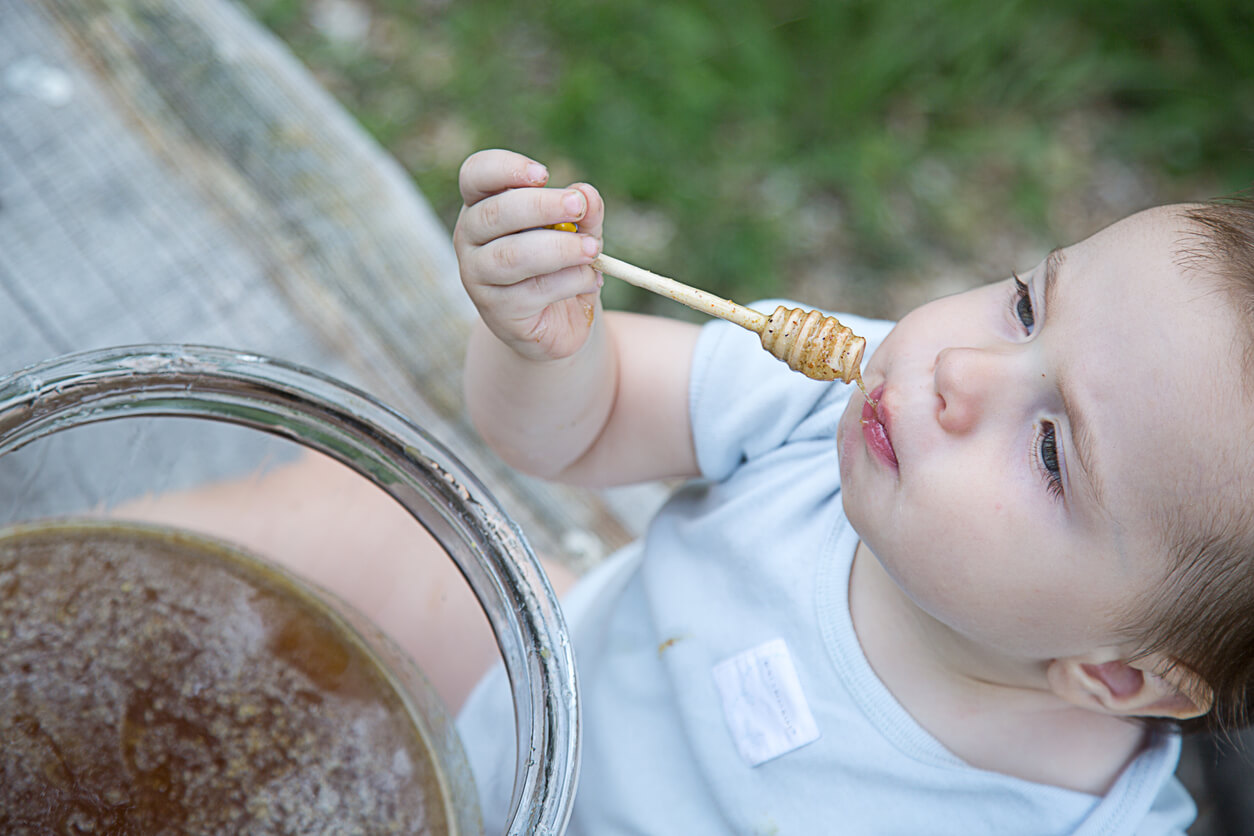5 Forbidden Foods for Babies Under One Year of Age
There are a number of forbidden foods for babies under one year of age, as they could cause serious problems. Learn more in today's article.

There are a number of foods that are forbidden for babies under one year of age because of the health complications they could cause. At this stage of life, the digestive tract isn’t yet mature enough, so there are certain foods that babies won’t be ready to absorb or metabolize.
Before starting, we must emphasize that the best product to give to your baby during the first 12 months is breast milk. It contains all the nutrients that a baby’s body needs. In addition, it provides a series of bioactive compounds that will protect against the development of chronic and complex diseases.
Forbidden foods for babies under one year of age
Below, we’re going to show you the foods that are prohibited for babies under one year of age. It’s essential to take care of their diet in this period and, although complementary feeding can be introduced at 6 months, not all types of food are suitable.
1. Honey
Until the first year of life, babies can’t consume honey. Otherwise, they could develop infant botulism, as evidenced by research published in the journal Pediatric Neurology. The bodies of infants aren’t prepared to handle this product, which could concentrate a certain amount of pathogenic bacteria inside. For adults, this is never a risk, but it is a risk for babies.

2. Nuts
Nuts are difficult for babies and small children to handle. Because of their shape and structure, the risk of choking is increased with this kind of product. In addition, the risk of developing allergies or autoimmune disorders is greatly increased when nuts are included in the diet too early. Therefore, it’s better to wait until the level of development is higher to start offering them.
3. Cow’s milk
Cow’s milk is a quality food with high nutritional density, but it’s not suitable during the first year of life. If it’s not possible to offer breast milk, formula or special infant milk with an adequate level of digestibility should be sought. Research has shown that protein intake is essential, so the consumption of these nutrients of high biological value shouldn’t be neglected.
4. Large bluefish
Bluefish are a source of omega-3 fatty acids. These elements not only have a positive impact on neurological development but also modulate inflammation levels and help prevent the onset of allergies and autoimmune problems. However, small fish should always be prioritized.
This is because large fish have a higher concentration of heavy metals, such as mercury. Their accumulation in the body could be harmful, especially during the early stages of life. It’s better to include salmon or canned tuna in their diet because they don’t contain such quantities of these compounds inside.
5. Sugar

Of course, the inclusion of added sugars in the diet of babies under 1 year of age should be avoided. Otherwise, it could cause some sort of metabolic pathology and generate high stress at the pancreatic level. Even taste perception would be altered, which will condition dietary appetite in the future.
Beware of forbidden foods for babies under one year of age
As you’ve seen, there are a number of forbidden foods for babies under one year of age that shouldn’t appear in their diet under any circumstances. Otherwise, there’s an increased risk of experiencing serious health problems or developmental disturbances as the weeks go by. It’s best to prioritize breastfeeding at this time and gradually introduce complementary feeding.
Please note that you can always consult your pediatrician for guidance. They can provide a guide for food introduction according to the baby’s age, which will be very didactic and will help you to resolve all the doubts that may arise.
